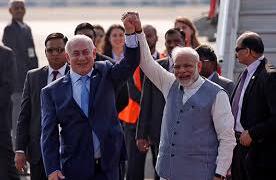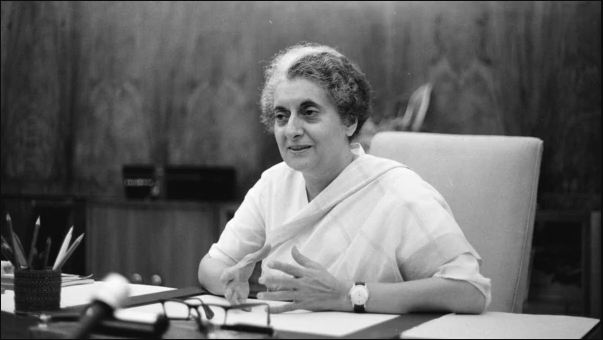October 31 is a day of mixed emotions in India’s independent history. On one hand, it is the birth anniversary of the man behind India’s integration, India’s first Home Minister, Sardar Vallabhai Patel, and today on October 31, 2019, the Modi government has also undone a historical wrong by bifurcating the state of Jammu & Kashmir into separate Union Territories of Jammu & Kashmir and Ladakh. On the other hand, it also happens to be the death anniversary of India’s only woman Prime Minister till date, Indira Gandhi.
Having served for around 15 long years, in two different terms, first from 1966 to 1977 and then from 1980 to 1984, before she was assassinated by her bodyguards on the fateful day of October 31, 1984, Indira Gandhi is also the second longest serving Prime Minister of India till date, next only to her father. One of her achievements that continues to define her political career is the 1971 war. Her fans claim that it was due to Indira Gandhi’s visionary leadership that Pakistan could be partitioned and a new country, Bangladesh could be formed. She is largely credited with India’s exceptional military exploits.
https://services.tfipost.com/
However, something that is rarely discussed is whether we made full use of the sacrifices and battlefield exploits of our defence forces. The three defence forces inflicted a humiliating defeat upon the Pakistani military establishment. It was only due to the deadly assaults like the Operation Trident by the Indian Navy in which the Karachi Harbour of Pakistan was absolutely annihilated that the Pakistani forces were forced to surrender in not more than 14 days. In what came as a massive embarrassment for the Pakistani Army, Lt. General AAK Nizai, its Commander of the Eastern Command surrendered before the Indian Army’s Lt. General, Jagjit Singh Aurora, paving the way for creation of Bangladesh. The war had left Pakistan absolutely devastated. The Islamic Republic of Pakistan had suffered extensive damage. A major part of its territory was partitioned, while yet another part of its territory came under the occupation of the Indian military forces and on top of that 93,000 Pakistani soldiers and Razakars were taken as Prisoners of War by India.
At that time, India enjoyed a massive advantage over Pakistan having toppled the latter in the battlefield. The Simla Agreement was signed on July 2 1972, while the 1971 war had ended on December 16, 1971 itself. Indira Gandhi had considerable time to chalk out a strategy on how to make full use of the battlefield exploits, the 93,000 Pakistani prisoners at her disposal along with the territorial gains that India had made in Pakistan. As such, India had two broad objectives to achieve, viz. to get Zulfikar Ali Bhutto, then Pakistan PM into recognising Bangladesh and secondly, getting Pakistan to agree upon a final solution on Kashmir for once and for all. While the former was not that much of an issue, the latter could have been a major achievement had the Indira Gandhi government managed to make full use of the massive upper hand it enjoyed over Pakistan.
It is relevant to mention here that the war resulted in dire consequences for Pakistan. There was irresistible anxiety and widespread concern in Pakistan over the prisoners of war who fell into India’s custody. Public opinion in Pakistan was also centred around repatriation of Pakistani Prisoners of War. Pakistani politicians said, ‘Pakistanis are prepared to sacrifice their land for the sake of the prisoners — it is better to have the POWs returned than to have the land back.’
Pakistani PM, Zulfikar Ali Bhutto couldn’t have resisted succumbing to the popular public opinion within the country. The political climate in Pakistan with the elimination of its military establishment as a factor had set the stage perfectly for a forceful negotiation by India. Moreover, India could have used withdrawal of its troops and early return of Pakistani Prisoners of War as effective bargaining tools in order to secure a permanent solution on Kashmir, largely on its own terms and conditions. Pakistani public opinion was in favour of even giving away its territory in order to secure the early return of its men and the Zulfikar regime couldn’t have possibly resisted this opinion for very long. India never really had any ambitions of holding onto this territory, but could have at least secured a favourable, permanent solution on Kashmir in return of its goodwill measure of withdrawing its troops from the Pakistani territory.
Foreign observers have pointed out, ‘Bhutto was willing to forsake the Indian-held two-thirds of Kashmir and agree that the ceasefire line, to be negotiated, would gradually become the border between the two countries.’ However, Indira Gandhi seems to have missed a trick by unnecessarily expanding the scope of the Simla Agreement to repatriation of Pakistani Prisoners of War and withdrawal of troops. Moreover, DP Dhar, one of Indira Gandhi’s key advisors, who went to Pakistan for a pre-summit dialogue was clearly more interested in securing recognition of Bangladesh rather than securing a favourable solution on Kashmir. The former as stated earlier was not much of an issue. Once Bangladesh had been liberated, Pakistan couldn’t really have done much about it. The Indira Gandhi government should actually have been more concerned about how to use the massive gains India made out of the 1971 war to secure a favourable solution on Kashmir.
What the Simla Agreement did was to enact an instrument for settling the Kashmir issue peacefully and bilaterally. It is beyond comprehension that when India had already managed to humiliate Pakistan, then what was the need of securing peace from the Zulfikar regime. India could have made far bigger gains in the Accord. Pakistan did not even stick to the mutual agreement of peacefully resolving the Kashmir issue. It has been consistently resorting to cross-border terrorism in Kashmir for the past three decades. On his part, Zulfikar Ali Bhutto was able to convince the Indian side that he couldn’t agree on a permanent solution on Kashmir, owing to the domestic pressure and that he couldn’t go back to Pakistan empty-handed. However, this shouldn’t have bothered the Indian side. Pakistan had lost the war and it was for Pakistan and Zulfikar to manage its domestic issues. India should have been steadfast in its demand of securing the Pakistan occupied Kashmir from Pakistan and correcting the blunder committed by Jawaharlal Nehru. However, the Indira Gandhi government signed a bilateral agreement for peaceful resolution and with time even that has become a dead letter which has not been honoured by Pakistan.




























